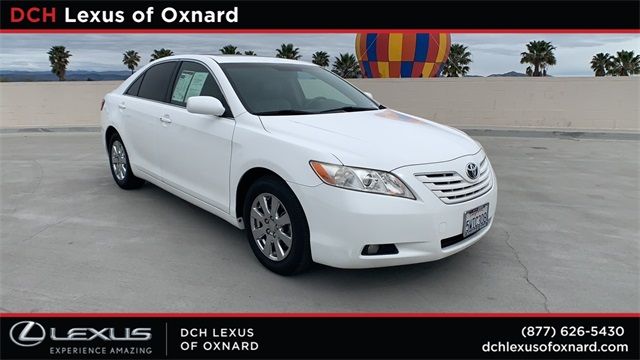When it comes to purchasing a midsize sedan, the Toyota Camry has long been a stalwart choice for consumers seeking a harmonious blend of reliability, comfort, and efficiency. Among the many attributes that make the Camry a favorite, fuel efficiency often stands at the forefront of consumer considerations. In this article, we’ll delve into the intricacies of the Toyota Camry’s miles per gallon (MPG) ratings, exploring various aspects that influence these figures and what potential buyers can realistically expect from their vehicle.
One of the primary factors to consider when discussing the Camry’s fuel efficiency is the engine type. Toyota offers the Camry with a variety of engine options, including a capable four-cylinder engine and a robust V6. The four-cylinder models tend to deliver impressive fuel economy statistics, often advertised at around 28 miles per gallon in the city and up to 39 on the highway. This makes them particularly appealing for urban dwellers and road-trippers alike, who seek to maximize their gasoline expenditure while minimizing visits to the pump.
On the other hand, the V6 engine, while offering a more exhilarating driving experience with enhanced power and torque, does come with a modest compromise on fuel efficiency. Typically, buyers can expect around 22 miles per gallon in city driving conditions and roughly 32 on the highway. It’s a classic case of weighing power against practicality—a decision influenced by personal driving habits and lifestyle choices.
The introduction of hybrid variants in the Camry lineup has further elevated its status in the realm of fuel efficiency. The Camry Hybrid stands out for its radical convergence of power and economy, often boasting MPG figures that soar well above the traditional gas models. With figures reaching up to 51 miles per gallon in city driving and 53 on the highway, the hybrid Camry presents a compelling option for environmentally-conscious consumers eager to reduce their carbon footprint without sacrificing performance.
But fuel efficiency is not solely a product of the engine type. A multitude of factors plays an integral role. Driving habits, for instance, can significantly influence the actual MPG a driver experiences. Aggressive acceleration, excessive idling, and rapid deceleration can all diminish fuel efficiency. Thus, adopting a more laid-back driving style can help maximize the miles a driver can achieve from every gallon of fuel.
Moreover, external variables such as terrain, weather conditions, and vehicle maintenance also come into play. Drivers traversing hilly landscapes may find their fuel economy takes a hit compared to those navigating flat roads. Similarly, harsh weather—think of icy winter mornings or sweltering summer afternoons—can create conditions that impact MPG. It’s also crucial to ensure regular maintenance, including timely oil changes and proper tire inflation, which can optimize engine performance and enhance fuel efficiency.
Another dimension to explore is the impact of technology on fuel efficiency. Modern Camrys come equipped with advanced operational features like adaptive cruise control and various drive modes. These technologies aim to harmonize power delivery and fuel consumption, allowing drivers to achieve more efficient operation under a variety of conditions. The ‘Eco’ mode, for instance, serves to recalibrate throttle response and shift points, emphasizing efficiency without drastically sacrificing driving pleasure.
For consumers considering the Toyota Camry, understanding the broader implications of fuel efficiency can help in selecting the right model. The balance between power and practicality is paramount, particularly for those who envision their vehicle as a means to support their daily commute or family travels. It’s one thing to know the theoretical MPG; it’s another to assess how that plays out in real-world scenarios—this balance is a quintessential aspect of the informed buyer’s journey.
Moreover, to add an additional layer of depth to the conversation, it’s important to consider the long-term financial implications of fuel economy. With fluctuating fuel prices, cars that offer higher MPG ratings don’t just provide immediate savings at the pump. Over the lifespan of the vehicle, those savings can accumulate significantly. This perspective is indispensable for buyers evaluating potential future costs associated with their vehicle choice.
In sum, the Toyota Camry presents a compelling case for both efficiency and performance across various engine offerings. Whether you opt for the economically sound four-cylinder, the dynamic V6, or the extraordinarily efficient hybrid model, each variant brings unique characteristics that cater to a diverse range of drivers. When evaluating miles per gallon, it’s essential to embrace a holistic view of the factors involved—from personal driving habits to weather conditions, and even technological aids designed to enhance efficiency. Ultimately, by thoughtfully considering these aspects, you can make an informed decision on which Toyota Camry fits seamlessly into your lifestyle.
As the automotive landscape continues to evolve, embracing fuel-efficient models like the Toyota Camry can lead to more sustainable driving practices while ensuring that you remain ever-ready to hit the road with confidence. Emphasizing fuel economy doesn’t mean compromising on comfort or performance; in fact, it could open the door to a new era of driving where environmental concerns and driving pleasure mutually coexist.
